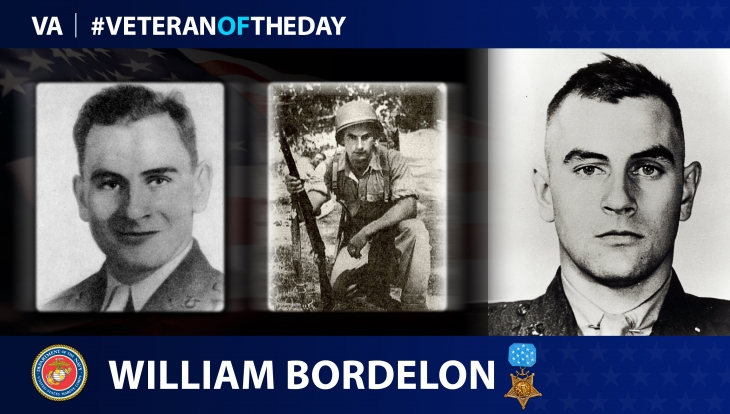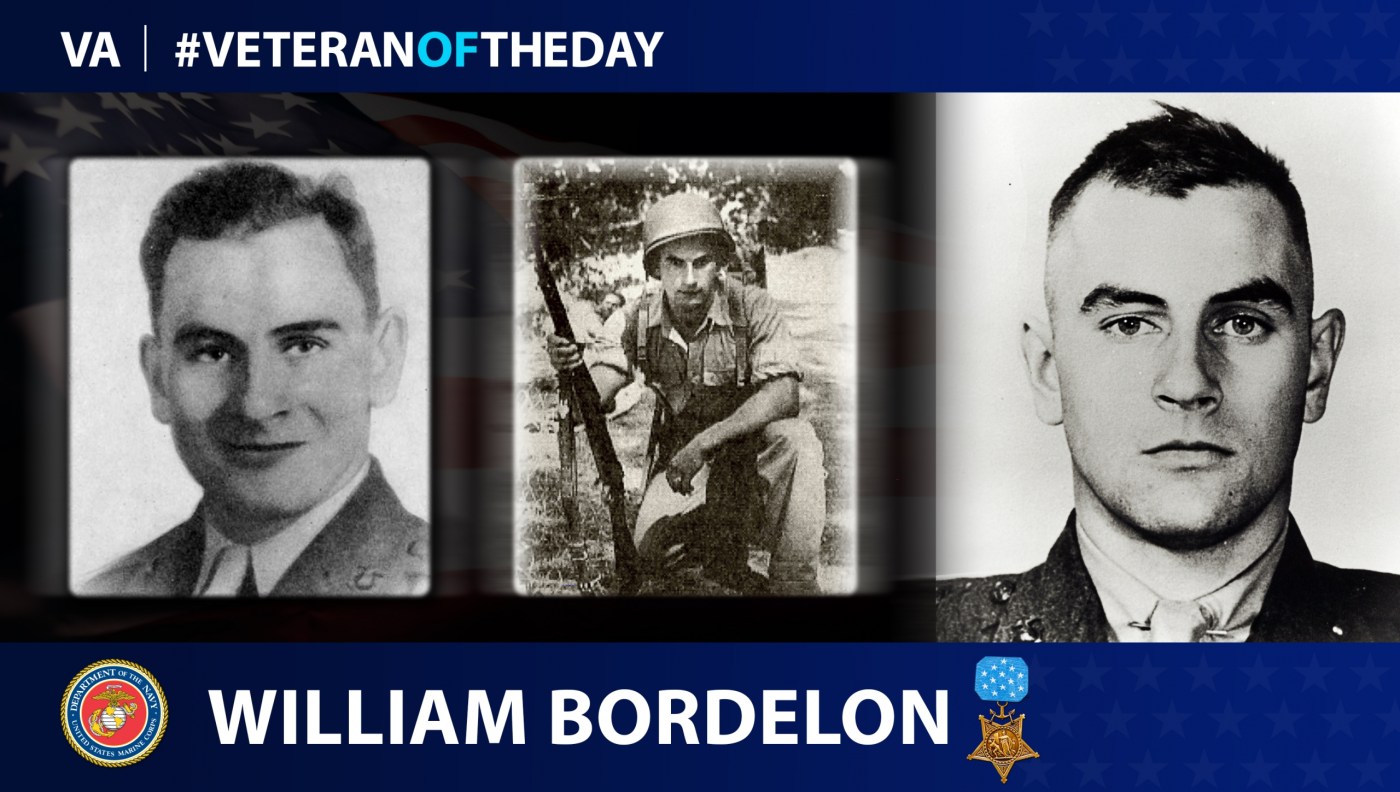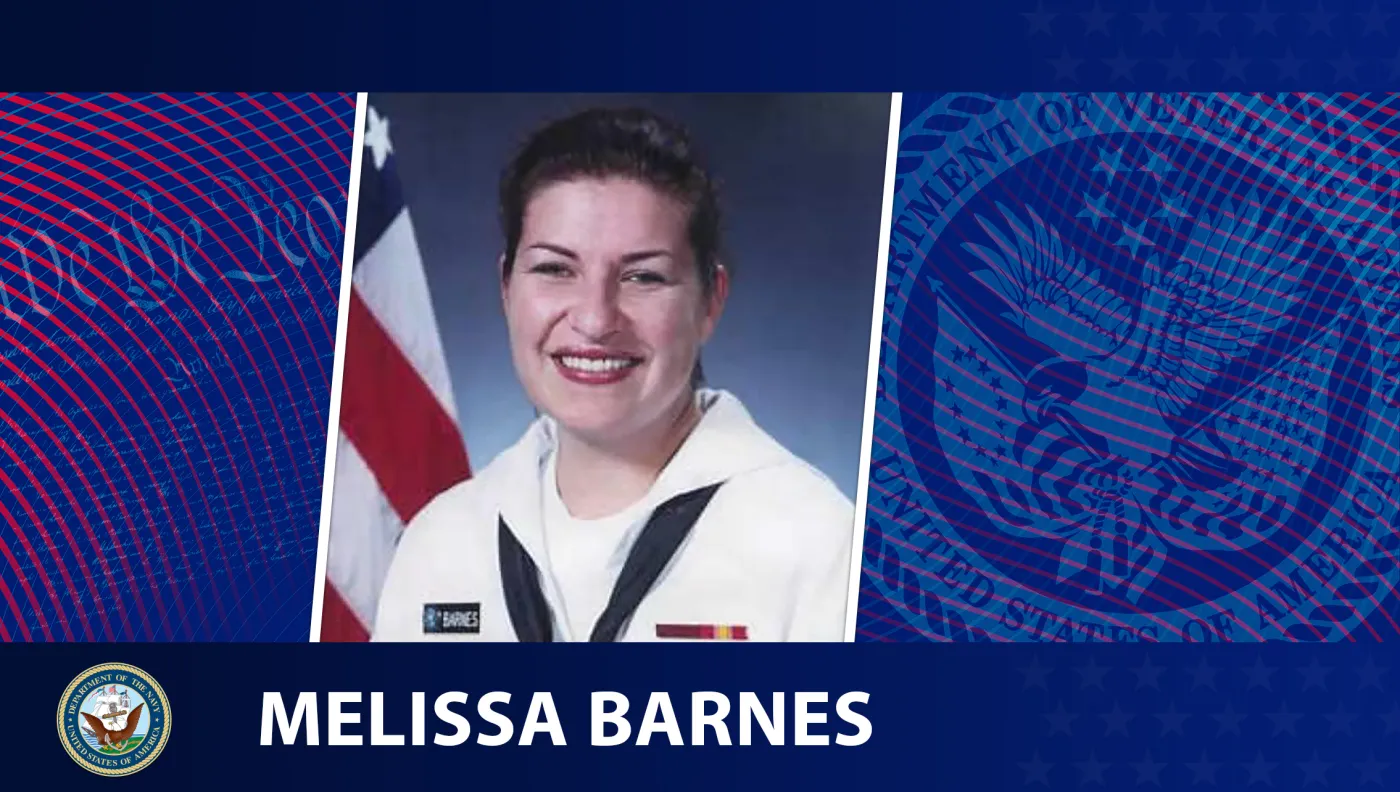
Today’s #VeteranOfTheDay is Marine Veteran William Bordelon, who received a Medal of Honor for his actions in Tarawa during World War II.
Born and raised in San Antonio, Texas, William Bordelon always had a commitment to his community. As a child, he served as an altar boy at Mission San Jose, an old mission Catholic church and participated in local community events there. He attended Central Catholic Marianist High School and served as the top-ranking cadet officer in the Junior Reserve Officers Training Corps, before graduating in 1938.
Three days after the attack on Pearl Harbor, Bordelon enlisted in the Marine Corps and went to San Diego, California, for basic training. After completing his training, Bordelon joined Company D, Second Engineer Division, Second Marine Division.
On Oct. 20, 1942, Bordelon and his unit were in New Zealand for six weeks for additional training before joining the Guadalcanal campaign. This was the first major land offensive by Allied forces against the Empire of Japan, from Jan. 4, 1943, to Feb. 19, 1943. After returning from the campaign, Bordelon promoted to staff sergeant on May 13, 1943.
Bordelon’s next campaign was on the beaches of the Japanese-held Tarawa Atoll of the Gilbert Islands, part of America’s first offensive in the central Pacific region during World War II. He landed on Tarawa’s beaches amid intense enemy fire on Nov. 20, 1943, with the 1st Battalion, 18th Marines, 2nd Marine Division. Bordelon was one of only four who survived the landing. After leaving his landing vehicle, Bordelon and a fellow Marine, Elden Beers, were caught in barbed wire. They managed to remove themselves before reaching safety behind a seawall. Due to the intense fire and the urgent need to reach safety, the Marines lost all their equipment except for a few sticks of dynamite. Bordelon formed the dynamite into demolition charges and destroyed two pillboxes, or concrete-build guard posts.
Without hesitation, he provided aide for a badly wounded Marine. He rescued him and another man, who had been hit by enemy fire while attempting to make the initial rescue. He later went on to cover for his fellow Marines, who were scaling a seawall, while his other companions attempted another rescue on the beach. However, the enemy machine gunners pinned them down. Bordelon attempted to rescue the badly wounded Marine on the shore. Refusing aid for the injuries he sustained during the offensive, Bordelon assaulted and destroyed a fourth Japanese machine gun position before being shot. Shortly after, he fell to the ground and died from his injuries.
For Bordelon’s actions on the shores of Tarawa, he posthumously received a Medal of Honor from President Franklin D. Roosevelt, who presented the medal to Bordelon’s mother on June 17, 1944. He was the first Texan Marine to receive the Medal of Honor. Bordelon also posthumously received a Purple Heart, a Presidential Unit Citation, an Asiatic-Pacific Campaign Medal and a World War II Victory Medal.
We honor his service.
Nominate a Veteran for #VeteranOfTheDay
Do you want to light up the face of a special Veteran? Have you been wondering how to tell your Veteran they are special to you? VA’s #VeteranOfTheDay social media feature is an opportunity to highlight your Veteran and his/her service.
It’s easy to nominate a Veteran. Visit our blog post about nominating to learn how to create the best submission.
Contributors
Writer: Elizabeth Jefimova
Editors: Katherine Berman and Merrit Pope
Fact checker: Carl Wesseln
Graphic artist: Kiki Kelley
Topics in this story
More Stories
This week’s Honoring Veterans Spotlight honors the service of Marine Corps Veteran Opha May Johnson, who served during World War I.
This week’s Honoring Veterans Spotlight honors the service of Navy Veteran Melissa Barnes, who died while serving on Sept. 11, 2001.
This week’s Honoring Veterans Spotlight honors the service of Army Veteran Pamela Dorothy Donovan, who served as a nurse in Vietnam.






We honor the service of William Bordelon.
He made the ultimate sacrifice for his mission and his fellows in arms. May we all remember that bravery and sacrifice and pay it forward.